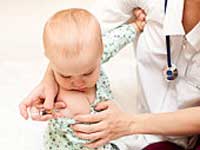Just In
- 2 hrs ago

- 3 hrs ago

- 12 hrs ago

- 12 hrs ago

Don't Miss
- Finance
 107% Returns: Tata's NBFC Doubles Investors Money, Rs 53,440 Profits On Rs 50K; Key Parameters To Buy/Sell
107% Returns: Tata's NBFC Doubles Investors Money, Rs 53,440 Profits On Rs 50K; Key Parameters To Buy/Sell - Sports
 KKR vs RR Memes: Fans Take Potshot at KKR for Conceding Match after Scoring 223; Praises Jos Buttler's Knock
KKR vs RR Memes: Fans Take Potshot at KKR for Conceding Match after Scoring 223; Praises Jos Buttler's Knock - Movies
 Bade Miyan Chote Miyan Vs Maidaan Box Office Collection Day 6: Akshay Kumar BEATS Ajay Devgn. Margin Is...
Bade Miyan Chote Miyan Vs Maidaan Box Office Collection Day 6: Akshay Kumar BEATS Ajay Devgn. Margin Is... - News
 UAE Weather Report: Floods Hit Dubai, 18 Dead; Govt. Shuts Schools, Colleges
UAE Weather Report: Floods Hit Dubai, 18 Dead; Govt. Shuts Schools, Colleges - Education
 UPSC Success Story: An IITian, A Government Job Holder at Railways, Quit the Job and Emerged as an IAS
UPSC Success Story: An IITian, A Government Job Holder at Railways, Quit the Job and Emerged as an IAS - Automobiles
 Jeep Compass Gets More Powerful 268.3bhp Turbo Petrol Engine – Check Out All The Details Here
Jeep Compass Gets More Powerful 268.3bhp Turbo Petrol Engine – Check Out All The Details Here - Technology
 Redmi Pad SE With 90Hz Display Launching on April 23 in India; Could Be Priced for Less Than Rs 20,000
Redmi Pad SE With 90Hz Display Launching on April 23 in India; Could Be Priced for Less Than Rs 20,000 - Travel
 From Coconut Breaking on Head to Men Dressing as Women: 12 Unique Indian Rituals Explored
From Coconut Breaking on Head to Men Dressing as Women: 12 Unique Indian Rituals Explored
Don't Miss Out On Measles Vaccination

The reason being the level of antibodies infants get from their mother drops over time, leaving them susceptible until they are vaccinated.
These facts make measles vaccination necessary for infants at around 12 months of age.
The study was done on 207 healthy women-infant pairs, from five hospitals in the Province of Antwerp, Belgium.
They were divided into groups of two according to their medical records.One group consisted of those who had been vaccinated against measles during infancy and another group consisted of those with naturally acquired immunity from measles infection earlier in life.
Then the levels of measles antibodies were measured from blood samples, which were taken during week 36 of pregnancy, at birth (cord blood), in all infants at 1, 3 and 12 months. This was done randomly at either 6 or 9 months.
The result showed that vaccinated women had significantly fewer antibodies than then naturally immune women. Accordingly, infants of vaccinated women measured lower antibody levels than infants of naturally immune women.
The maternal antibodies last only for 2.61 months – 3.74 months. At around six months of age, 99 percent of infants of vaccinated women and 95 percent of infants of naturally immune women had lost their maternal antibodies. By 9 and 12 months, no positive samples were left in either group.
It was noticed that breastfeeding, birth weight, educational level, cesarean section or day care attendance had no effect on the duration of maternal antibodies.
This study concluded that sensitivity to measles in both infants of vaccinated women and women with naturally acquired immunity is the same after a certain period of time.
If future studies show that measles vaccines can be offered with success at an age of less than nine months, policy makers could consider moving forward the routine measles vaccination programme.
The 12th and 15th month of the baby is most sensitive to measles. Thus, these months the infant needs to be vaccinated. Generally it is adviced, not be give vaccination to the infant below nine months.
-
 health4 Diseases You Can Take Vaccine For Even After You Turn 40: Is It Too Late to Get Hepatitis B Vaccine?
health4 Diseases You Can Take Vaccine For Even After You Turn 40: Is It Too Late to Get Hepatitis B Vaccine? -
 healthDid Covid-10 Vaccination Increase Risk Of Sudden Deaths In Young Adults? ICMR Finds This..
healthDid Covid-10 Vaccination Increase Risk Of Sudden Deaths In Young Adults? ICMR Finds This.. -
 kidsMeasles And Rubella Vaccination Drive Commences In Delhi: What You Need To Know
kidsMeasles And Rubella Vaccination Drive Commences In Delhi: What You Need To Know -
 disorders cureCommon COVID Symptoms In Fully Vaccinated Individuals: What You Should Know
disorders cureCommon COVID Symptoms In Fully Vaccinated Individuals: What You Should Know -
 wellnessMild COVID Linked To Life-Threatening Blood Clots, Increased Risk Of Cardiovascular Disease; Study
wellnessMild COVID Linked To Life-Threatening Blood Clots, Increased Risk Of Cardiovascular Disease; Study -
 disorders cureWHO Publishes First-Ever List Of Fungal Pathogens: What You Should Know
disorders cureWHO Publishes First-Ever List Of Fungal Pathogens: What You Should Know -
 wellnessCOVID-19 Variants In India: New COVID Variant May Pose Threat To Elderly People
wellnessCOVID-19 Variants In India: New COVID Variant May Pose Threat To Elderly People -
 basicsCovid-19 Linked To Early Onset Of Periods: What You Need To Know
basicsCovid-19 Linked To Early Onset Of Periods: What You Need To Know -
 wellnessCOVID XBB Variants Of Omicron In India: What You Should Know
wellnessCOVID XBB Variants Of Omicron In India: What You Should Know -
 disorders cureNew Omicron Subvariant BQ.1 Detected In Maharashtra: What You Should Know
disorders cureNew Omicron Subvariant BQ.1 Detected In Maharashtra: What You Should Know -
 disorders cureOmicron BF.7 In India, Risk Of Fresh Wave During Diwali: What You Should Know
disorders cureOmicron BF.7 In India, Risk Of Fresh Wave During Diwali: What You Should Know -
 disorders cureWhat Is ‘Centaurus,’ New Fast-Spreading Covid Variant: Everything You Need To Know
disorders cureWhat Is ‘Centaurus,’ New Fast-Spreading Covid Variant: Everything You Need To Know


 Click it and Unblock the Notifications
Click it and Unblock the Notifications



